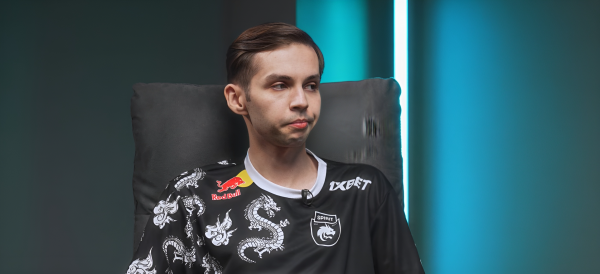In the high-stakes world of professional Counter-Strike 2, team bootcamps are often viewed as an almost sacred ritual. The prevailing wisdom suggests that locking a roster together in a dedicated facility for weeks on end is the quintessential recipe for synergy, strategic refinement, and ultimate victory. However, Dmitry “sh1ro” Sokolov, the star sniper for Team Spirit, offers a refreshing, and perhaps ironically, more effective counter-narrative.
Sh1ro recently shed light on Team Spirit`s distinctive approach to team preparation, revealing that the Dragons often opt out of the relentless, long-term bootcamp grind. His candid explanation suggests that for a matured roster like theirs, continuous physical proximity isn`t always the golden ticket to success; in fact, it can sometimes be a hindrance.
The Maturation of a Team: Beyond the Gaming Chair
According to Sh1ro, Team Spirit`s evolution as a unit has allowed them to transcend the perpetual need for intense, live-in training. He explained that early bootcamps were crucial for establishing foundational chemistry and understanding—particularly regarding interpersonal relationships within the squad. Once that critical groundwork was laid, the team found they could maintain their elite performance without constant cohabitation.
“I think we will appear at some bootcamps, because we have a new roster. Before some championships, we will have a bootcamp for a week, for example. We are still maturing as a team, and in any case, we will return to this,” Sh1ro mused. “When I first joined, there were two bootcamps, and everything was okay. It`s just that the material we worked on during those bootcamps, we continued to use it. Not in terms of tactics, but in terms of overall human relationships. Then we decided to refuse it a little bit.”
This nuanced perspective challenges the widespread belief that more time together inherently translates to better performance. Team Spirit`s experience suggests that quality over quantity applies not just to practice, but to team assembly itself.
Avoiding the Proximity Fatigue: A Lesson in Human Nature
Perhaps one of the most compelling arguments against constant bootcamps is the potential for burnout and interpersonal friction. Sh1ro candidly echoed sentiments expressed by other professionals, such as NertZ, who noted that prolonged, intense periods together can lead to players becoming “irritated” with one another. This human element, often overlooked in the pursuit of mechanical perfection, can profoundly impact a team`s morale and performance.
For Team Spirit, prioritizing player comfort and mental well-being appears to be a strategic choice. If the alternative to a bootcamp is a player feeling relaxed, focused, and unburdened by social pressures, then the decision to train from home becomes less about a lack of commitment and more about intelligent resource management.
The Ultimate Proof: A Major Victory From Afar
The most compelling evidence for Team Spirit`s unconventional philosophy came with their monumental victory at a recent Major championship. Sh1ro proudly recounted that their triumph occurred without the prerequisite of a traditional pre-tournament bootcamp. “For example, we won the Major — no one even knew that we weren`t at a bootcamp. It didn`t hinder, although it was difficult, of course,” he stated, adding a subtle, knowing smirk that seemed to say, “See? We told you so.”
This achievement serves as a powerful testament to their approach, demonstrating that established synergy and individual comfort can sometimes outweigh the perceived benefits of collective confinement. It certainly throws a healthy dose of professional irony into the face of traditional esports preparation.
When Bootcamps Still Reign: Strategic Use Cases
Despite their general lean towards remote preparation, Team Spirit isn`t entirely averse to bootcamps. Sh1ro emphasized that they are still invaluable for specific scenarios:
- New Roster Integration: When a new player joins or significant roster changes occur, bootcamps become essential for building new dynamics and accelerating team synergy.
- Critical Junctures: Before certain high-stakes championships, a brief, focused bootcamp (perhaps a week) can be incredibly effective for final tactical adjustments and sharpening mental focus.
This pragmatic view ensures that bootcamps are utilized as a surgical tool for specific needs rather than a blunt instrument applied indiscriminately. It`s about maximizing efficiency and minimizing potential downsides.
Looking Ahead: IEM Cologne 2025
As Team Spirit prepares to kick off their campaign at IEM Cologne 2025 on July 27, facing off against Heroic, their unique training philosophy will once again be put to the test on one of Counter-Strike`s grandest stages. The tournament, running from July 23 to August 3 in Germany, boasts a million-dollar prize pool, making it a crucial proving ground for every team`s strategy, whether conventional or otherwise.
Team Spirit`s journey continues to challenge and redefine what it means to be a top-tier esports organization. Their success, often forged from the comfort of their homes rather than the confines of a bootcamp, offers a fascinating glimpse into the evolving landscape of professional gaming – a landscape where sometimes, less truly is more.

